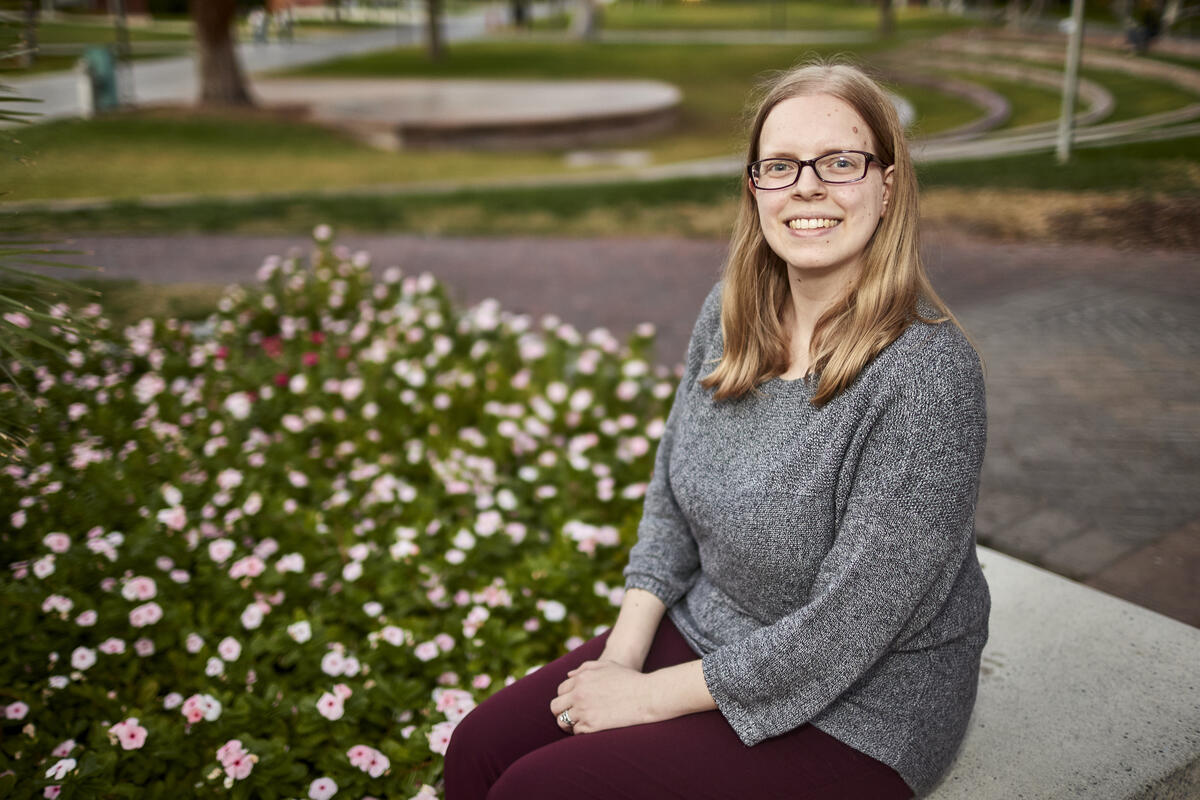Katherine Luebke well remembers both the stage fright and the exhilaration of stepping up to explain her complex research to a group of laymen — in less than three minutes.
“There's that moment they pop the slide up with your name on it, and you’ve got 10 seconds before you're going to start, and I can just feel my stomach just drop,” she recalled. “I just had to take this big deep breath, clear my mind, and remind myself ‘I've been over this hundreds of times.’”
A radiochemistry Ph.D. student, Luebke is describing what she felt during the final round of the Rebel Grad Slam 3-Minute Thesis Competition (3MT), a three-round competition in which graduate students across disciplines present their research in under three minutes, using only one PowerPoint slide.
She overcame her initial stage fright and wound up securing a third-place victory and $750 scholarship at this year’s Rebel Grad Slam 3MT for her creatively titled presentation, “Some Like it Hot: Keeping Cool with Hot Fuel.”
One of the main challenges of 3MT is clearly explaining your research to an audience outside your field. As a radiochemist, Luebke is used to answering questions about her seemingly daunting area of study.
“Every time I came home for the first few years of graduate school, I had to assure all my relatives, ‘No, I'm not going to grow an extra limb. No, I'm not going to get cancer; this is not that type of radiation,’” Luebke said.
“Culturally, we hear a lot about radiation creating superheroes or it making Godzilla-esque monsters, and there's really nothing in between. It doesn't leave a lot of room for the more mundane aspects of nuclear technology, where it's about power plants or it's about clean energy.”
Early interest
Luebke’s interest in nuclear science started at an early age. “I grew up in Idaho Falls (Idaho), which is home to one of our national labs where we do the government-level nuclear and radioactive material work. So it was always just around me, the general consciousness of, ‘Hey, there's radioactive material out there, and cool scientists get to work on it!’”
After graduating from Boise State University with a bachelor’s degree in chemistry, Luebke made a Google search that would change her life. “I was looking into graduate programs and had no idea where I wanted to go, so I literally Googled ‘radiochemistry graduate school’ and then the first result that popped up in Google was UNLV’s radiochemistry Ph.D. program.”
That serendipitous search led to a campus visit where Luebke immediately fell in love with the program’s collaborative nature. During the visit, she saw that “everybody cared about everybody else's success and there was a lot of co-working going on, that people work on projects together and teach each other things.
“UNLV was the top result in Google because this is one of the best radiochemistry programs anywhere. It consistently turns out fantastic results and excellent graduates!” she said.
In addition to her studies, Luebke has served as a teaching assistant for multiple chemistry courses. In those courses and through events like Rebel Grad Slam 3MT, she hopes to demystify the field of radiochemistry.
“Once you get past the taboo buzzwords like ‘nuclear radiation’ and all of that, you can get to things that people really care about, which is clean energy, and taking care of waste and cleaning up oceans, and cleaning up from previous nuclear accidents.”



